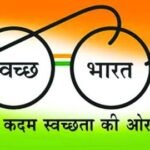The Rural Areas are the essence of India. As per the census 2011, more than 50% of the population in India still lives in rural areas. One can surely look at the development of rural regions, to indirectly assess the development of India.
Rural Development is Imperative, especially when the centre seeks the nation to join the digital revolution. But, in the process of making strides in areas such as pushing India to Go Digital or Creating Employment opportunities, something is burgeoning the entire nation, the voluminous waste being generated on an everyday basis.
Most of the waste generated in India comes from urban areas. Although urban waste somehow gets recycled or disposed of by the Urban Local Bodies (ULBs), the waste management in rural India is gruesome.
There are numerous critical issues that the government must address to promote rural development. One of the most important aspects of rural development is proper waste management, which is rapidly increasing in volume.
The type of waste generated in the rural areas includes community waste, agricultural waste, animal wastes, etc. As per the survey conducted in 2016 by the Ministry of Drinking Water and Sanitation (MDWS), the Government of India, rural India generated around 0.3 to 0.4 million metric tons per day of solid waste in a year.
The Odisha Government, in a recently held meet, stated that it will provide leverage to the Plastic Waste Management (PWM) and Fecal Sludge Management (FSM) in the Urban Local Bodies, enabling them to provide support for the management of such waste in the rural areas in Odisha.
An order issued by the Panchayati Raj Department of Government of Odisha disclosed that “To facilitate efficient FSM and PWM in the rural areas without creating separate facilities and infrastructure which would be unviable due to scale and size, it has been decided to leverage these facilities (FSTP & MRF) in the ULBs to cater to the requirements of rural areas.”
With the advantages such as large space availability and organic waste such as cow dung, leaves, and other types of farm waste, generated in large volumes, it is viable and economical to conduct waste management practices such as composting, biogas, etc.









Leave a reply